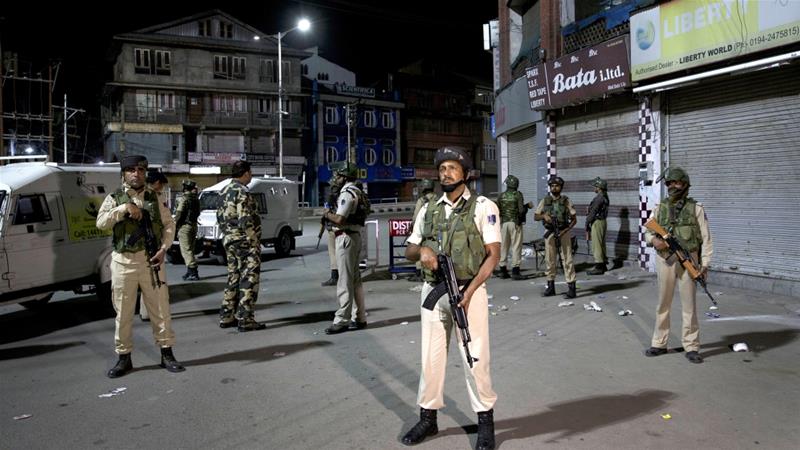Alwaght- India has declared on Monday it is revoking a decades-old constitutional provision that granted special powers to the disputed territory of Kashmir, a move likely to face major resistance in the Muslim-majority state and escalate tensions with Pakistan, The Guardian reported.
The proposal is the most radical change any government has suggested for Kashmir’s status since the region was granted autonomy in exchange for joining the Indian union after independence in 1947.
The announcement follows a security crackdown in Indian-administered Kashmir, where extra troops have been deployed and thousands of pilgrims and tourists were abruptly evacuated at the weekend.
In the early hours of Monday, Kashmiri leaders said they had been placed under house arrest, internet and phone coverage to Kashmir valley was cut, public gatherings were banned and schools closed.
Mehbooba Mufti, Jammu and Kashmir’s former chief minister, who was once in alliance with India’s ruling Bharatiya Janata party (BJP), tweeted that the government announcement would “make India an occupational force in Jammu and Kashmir … Today marks the darkest day in Indian democracy.”
The BJP has repeatedly pledged to scrap Kashmir’s special status but this is the first time a concrete proposal has been tabled.
The announcement could define Narendra Modi’s legacy as prime minister. However, it is likely to lead to a furious reaction from Pakistan, which also claims the territory. Two of the three wars India and Pakistan have fought since their independence from British rule have been over Kashmir.
The legal basis for the move is unclear as the constitution says the consent of the state legislature is required to revoke Kashmir’s status.
Amid shouting in India’s parliament on Monday, the interior minister, Amit Shah, proposed the abolition of article 370, which grants the state its own constitution and autonomy over all matters except for areas such as foreign affairs and defence.
As a result, there are concerns that another provision, which prevents people from outside the state buying land in the territory, could also disappear. Many Kashmiris believe this rule is crucial to protecting the demography of the state.
Currently, the state of Jammu and Kashmir comprises three regions: Hindu-majority Jammu, Muslim-majority Kashmir and Buddhist-majority Ladakh.
Shah said the government had decided to split the state into two union territories: Jammu and Kashmir, which will have a legislature; and Ladakh, which will be ruled directly by the central government without a legislature of its own.
Kashmir is claimed by India and Pakistan in full and ruled in part by both. An insurgency on the Indian-administered side has been going on for three decades, during which tens of thousands of people have been killed.
After the announcement on Monday, Indian media reports said a further 8,000 troops had been deployed to Kashmir, bolstering its already heavy military presence.
Over the weekend, panicked people across Kashmir, many of whom would be celebrating Eid next week, queued for hours outside petrol stations and cash machines.
In the early hours of Monday, Mufti and Sajad Lone, the president of the People’s Conference party, were among several politicians reporting they had been placed under house arrest. Omar Abdullah, the scion of a prominent political family in Kashmir and former chief minister in the state, said on Sunday evening he believed he would be placed under house arrest.



























